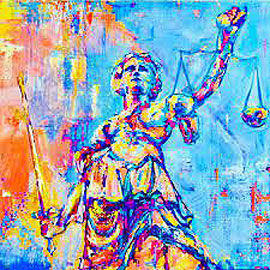More Foucault
Truth is undoubtedly the sort of error
that cannot be refuted because it was hardened
into an unalterable form
in the long baking process of history.1
Moreover, the very question of truth,
the right it appropriates to refute error
and oppose itself to appearance,
the manner in which it was developed
(initially made available to the wise,
then withdrawn by men of piety to and unattainable world
where it was given the double value
of consolation and imperative,
finally rejected as a useless notion,
superfluous, and contradicted on all sides)
–does this not form a history,
the history of an error we call truth?
Truth, and its original reign,
has had a history within a history from which
we are barely emerging
“in the time of shortest shadow,”
when light no longer seems to flow
from the depths of the sky
or to arise from the first moments of the day.2
Nietzsche, Genealogy, History by Michel Foucault, trans. by D. Bouchard and S. Simon
1 The Gay Science by Nietzsche, aphorism 265 and 110
2 Twilight of the Idols, by Nietzsche, “How the world of truth becomes a fable”
 The essay by Michel Foucault is replete with gem-like ideas held for contemplation, which the author has received from his predecessor and mentor’s work. These lines of reflection treating the notion of “truth” seem important given our situation in the aftermath of the atrocities of WWII, then the cavalcade of lies, bald falsehoods, precursors to wars in Vietnam, Iraq, and Afghanistan.
The essay by Michel Foucault is replete with gem-like ideas held for contemplation, which the author has received from his predecessor and mentor’s work. These lines of reflection treating the notion of “truth” seem important given our situation in the aftermath of the atrocities of WWII, then the cavalcade of lies, bald falsehoods, precursors to wars in Vietnam, Iraq, and Afghanistan.
Presently Americans anticipate a presidential election in November. The Republican candidate for the next four years, chief executive for the country, the face of global American prominence has entirely dispensed with truth as an idea. He is a font of fabulation, indifferent to semantic content.
Foucault speaks to the fractured condition of “truth” in our time. The deployment of a manner-of-speaking without taking the history of a term into account, is quite impossible. Foucault points to the hardening process of history, how “truth” has become ossified. First with Socrates/Plato philosophically advancing truth as the antithesis of error, a manner of speaking with ethical and political and epistemic links. Then came the corralling of truth as quasi-holy property of the Christian church, doled out to the faithful as consolation, as goad to obedience. Finally at the fold point of the modern to the post-modern era, Nietzsche and his successors caution us to notice the internal contradiction, and the ethical mendaciousness of the opinion-makers of our time. Truth is co-opted. Power co-opts truth. Again and again.
This history within a history, is hidden like a ragged rock in restless water, to borrow a phrase from T. S. Eliot poem, The Dry Salvages.
Our time certainly seems to be “the time of shortest shadow.” The future is obscure, and we cannot know whether light will reveal the dawn or whether the horizon will become more dark.
Truth is a ragged rock.